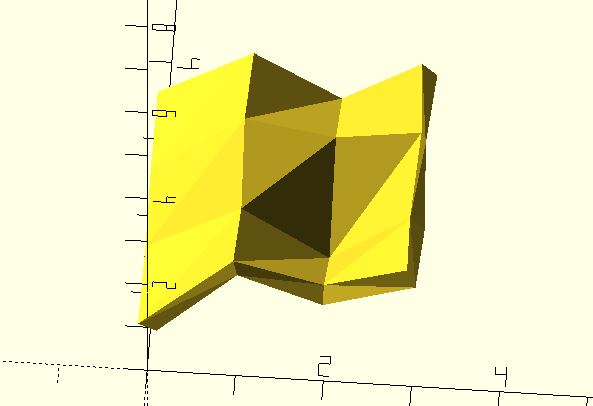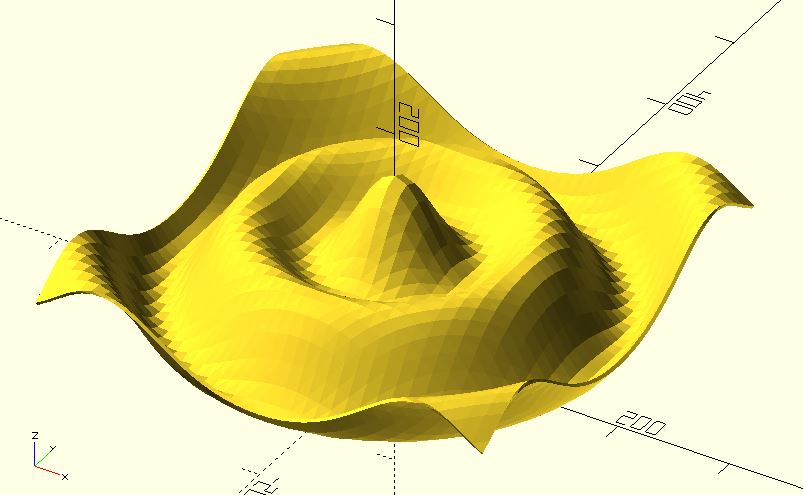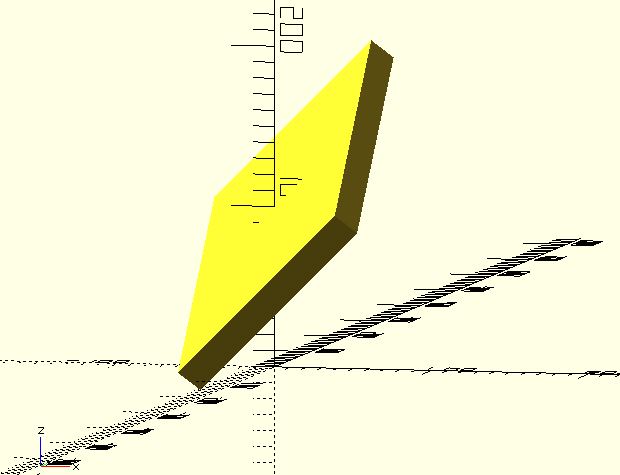mirror of
https://github.com/JustinSDK/dotSCAD.git
synced 2025-01-18 06:38:14 +01:00
1.7 KiB
1.7 KiB
sf_thicken
It thickens a surface, described by a m * n list of [x, y, z]s.
Parameters
points: A m * n list of[x, y, z]s. See examples below.thickness: The depth of the thickening.direction: The direction of thickening. It accepts"BOTH"(default),"FORWARD"or"BACKWARD". Thickening is applied in both directions from the surface, the direction of the surface normals or the opposite direction to the surface normals. It also accept a direction vector[x, y, z]. Thickening is only applied in the direction you give.
Examples
use <surface/sf_thicken.scad>;
points = [
[[0, 0, 1], [1, 0, 2.5], [2, 0, 2], [3, 0, 2.5]],
[[0, 1, 1], [1, 1, 2], [2, 1, 1], [3, 1, 2]],
[[0, 2, 1], [1, 2, 2.3], [2, 2, 2], [3, 2, 2.2]],
[[0, 3, 1], [1, 3, 2], [2, 3, 1], [3, 3, 2]]
];
thickness = 0.25;
sf_thicken(points, thickness);
use <surface/sf_thicken.scad>;
function f(x, y) =
30 * (
cos(sqrt(pow(x, 2) + pow(y, 2))) +
cos(3 * sqrt(pow(x, 2) + pow(y, 2)))
);
thickness = 3;
min_value = -200;
max_value = 200;
resolution = 10;
surface1 = [
for(y = [min_value:resolution:max_value])
[
for(x = [min_value:resolution:max_value])
[x, y, f(x, y) + 100]
]
];
sf_thicken(surface1, thickness);
use <surface/sf_thicken.scad>;
function f(x, y) = x + y;
thickness = 20;
min_value = -50;
max_value = 50;
resolution = 5;
surface1 = [
for(y = [min_value:resolution:max_value])
[
for(x = [min_value:resolution:max_value])
[x, y, f(x, y) + 100]
]
];
sf_thicken(surface1, thickness, direction = [1, 1, -1]);


